Temporarily hard water
Concept of temporary hard water
Temporarily hard water is a type of natural water that contains HCO3-, Ca2+ and Mg2+ ions. When they precipitate, they produce CO2 and H2O, which then produces regular drinking water.
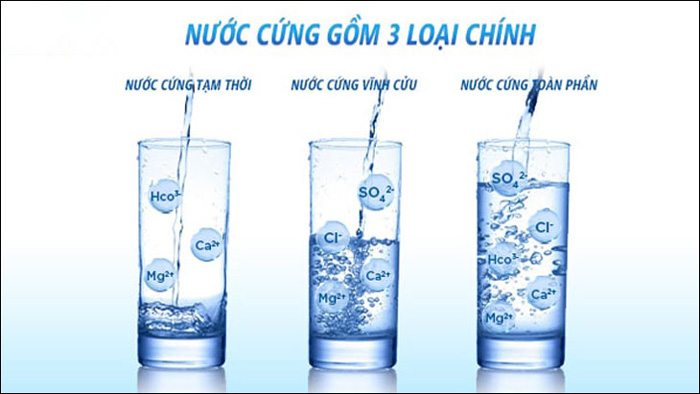
Hard water can be determined by boiling the water, which creates a white residue that sticks to the bottom of the kettle, or by adding soap to the water, which creates less suds.
Harmful effects of temporary hard water
To ensure human health, softening hard water is very important. Using hard water with high magnesium and calcium content will have a significant impact on human health and the surrounding environment. The harmful effects it can cause include:
For human health
- When temporary hard water containing bicarbonate salts is introduced into the body through drinking water, the food is converted into carbonate salts, also known as insoluble salts. It sticks to the intestinal wall, causing blockage and kidney stones over a long period of time.
- In addition, when using this type of water in daily life, bathing or washing, it will cause rashes, hand infections and make hair fall out faster.
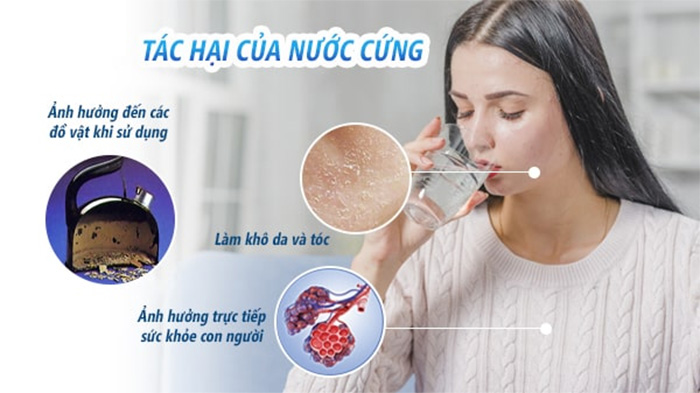
For everyday life
- When using water boiling tools, such as water heaters, aluminum or stainless steel pots, dirt will stick to the bottom and sides of the pot, making it difficult to clean and causing the surface to quickly deteriorate.
- When cooking with temporarily hard water, the CaCO3 component is a complete insulation. This makes food take a long time to cook, is not delicious and consumes a lot of energy.
- When washing clothes, the amount of soap mixed in will reduce the amount of foam.
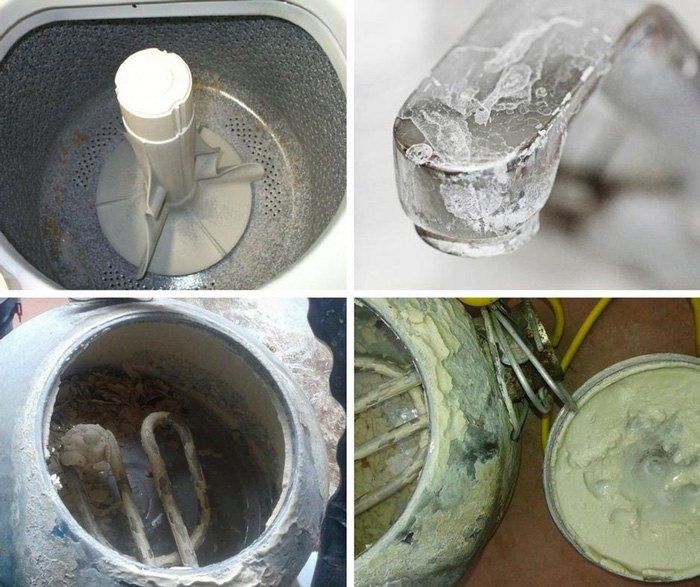
For industrial production activities
- Industry uses a lot of water, leading to rapid equipment deterioration, high production costs and low productivity.
- The food production industry will create goods with a pungent odor, affecting the quality of the goods.
The most effective temporary hard water softeners
When using hard water directly without treatment, there will be significant impacts. Therefore, temporary measures are needed to soften hard water:
1. Slaked lime - Ca(OH) 2
The chemical name of slaked lime is calcium hydroxide - Ca(OH)2. When Ca(OH)2 is added to water, it creates a temporary, permanent softening solution with a high pH concentration. Ca2+ and Mg2+ continue to react to create CaCO3 and Mg(OH)2.
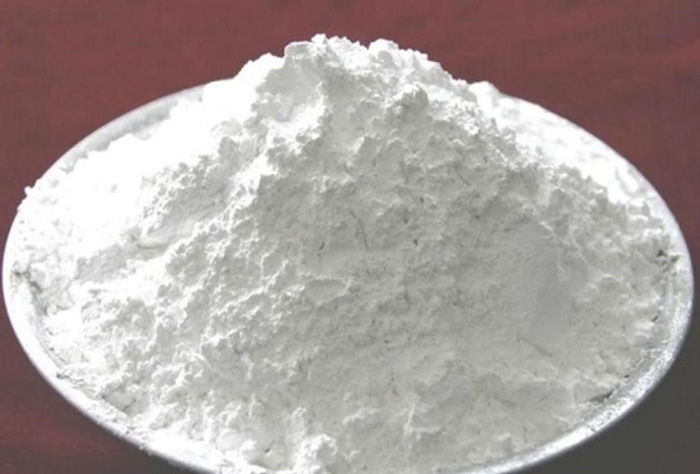
The soft part will float to the top after these two insoluble precipitates settle to the bottom. By flocculating, settling, filtering and creating clean drinking water, the residue can be easily removed.
2. Soda
The main ingredient of soda is Na2CO3 salt. When soda is added to water, it reacts with Mg2+, forming CaCO3 and Mg(OH)2 at the bottom. This is currently a fairly effective method of softening hard water.

However, when using soda to soften hard water in a short time, the Na+ content increases, which has a negative impact on human health. This leads to the use of additional reactions to treat residual Na+ in water.
3. Barium Hydroxide Ba(OH) 2
Ba(OH)2 is a white powder molecule with high hydrating ability. One Ba(OH)2 is capable of holding up to eight water molecules at a time.

When Ba(OH)2 is added to water, it hydrates. Then, Ba(OH)2 reacts with Mg2+ and Ca2+ to form precipitates. Mg(OH)2 and Ca(OH)2 then settle below, allowing the clear water to be decanted.
4. Sodium Hydroxide NaOH
Sodium hydroxide, an inorganic compound form of sodium salt, is not harmful to human health. When NaOH is added to water, Mg2+ and Ca2+ react with each other, creating Mg(OH)2 and Ca(OH)2. These substances settle and cause the water to become soft.
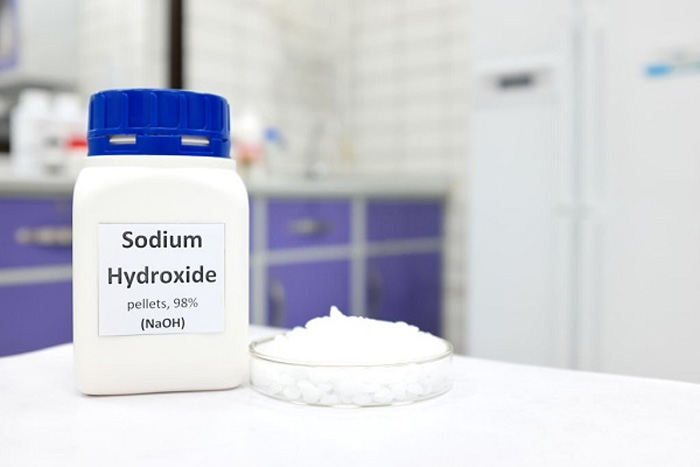
However, with this method of softening hard water, the water has a slightly salty taste and will not be suitable for people who eat bland foods and use little salt.
5. Sodium phosphate Na 3 PO 4
Na3PO4 is a crystalline solid that dissolves quickly in water. When Na3PO4 is added to water, it will dissolve and produce Mg3(PO4)2 and Ca3(PO4)2.
Na3PO4 is said to be able to remove alkalinity in water better than soda or slaked lime.

However, this substance is very expensive, so people often use slaked lime to reduce costs. Soda removes metals first, then sodium treats the remaining metals.


